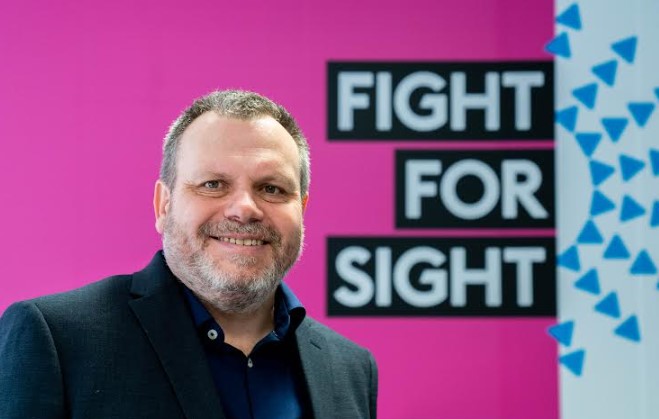Sector leaders are calling for clarity on how much support charities will receive from the new energy bills discount scheme, announced this week by the government to help businesses, non-profit organisations and the public sector tackle escalating fuel bills.
The government had provided a package of support worth £18bn to non-domestic customers such as charities until the end of March this year.
In announcing a new package of support, for charities and businesses for April to the end of March 2024, ministers are will now cap further support at £5.5bn.
Exchequer secretary to the treasury James Cartlidge made the announcement in parliament yesterday.
"Today I can confirm a new Energy Bill Discount Scheme for businesses, charities & the public sector.”
— HM Treasury (@hmtreasury) January 9, 2023
Exchequer Secretary to the Treasury @jcartlidgemp sets out the new 12 month energy scheme, providing support in the face of high energy prices. pic.twitter.com/4llQoORVEg
“The new scheme therefore strikes a balance between supporting businesses over the next 12 months and limiting taxpayer’s exposure to volatile energy markets,” said the Treasury.
NCVO chief executive Sarah Vibert welcomed that a discount scheme will be in place “but need to know what it means for charities”. She is due to meet with Cartlidge to gain further clarity.
“We know that even with this scheme, charities are facing costs they can’t afford,” she said.
“Demand is far out-stripping resource”, she said ahead of the meeting, where the NCVO “will be be making our warning clear: charities are at breaking point, a solution must be found.”
She added: “We want to see political, energy and charitable leaders come together to positively work on a long-term plan that ensures we’re never in this situation again. We have it in our power to collectively solve this problem.”
With members and partners, we campaigned for charities to get continued energy bill support. Tonight, we welcome news of the new discount scheme but need to know what it means for charities. I’m pleased to be meeting Treasury minister @jcartlidfemp later to discuss details 1/1
— Sarah Vibert (@sarahvibert82) January 9, 2023
Charities Aid Foundation chief executive Neil Heslop said it is “disappointing” that there is no targeted support specifically for charities in the discount scheme.
“Charities are caring for those who are hit the hardest by the cost-of-living crisis, whether by providing warm places, food packages, mental health services, or support for the homeless,” he said.
“Continued energy support is therefore critical, but it is disappointing that the government has not announced targeted support for charities in the new discount scheme.
“More and more people are relying on charity services, but they are stretched beyond measure with inflation increasing their costs and donations falling. Their finances are on a knife-edge even with the existing scheme, so organisations are relying on their reserves to cover core costs or cutting back on services.
“Many charities are running out of options to continue to provide for the vulnerable in our communities.”
Meanwhile, childcare charity the Early Years Alliance chief executive Neil Leitch said it is “incredibly concerning to learn that energy support” is to be scaled back.
“While the continuation of some energy support is better than nothing, the harsh reality is that the level of support announced today is unlikely to do much, if anything, to improve the current situation, especially given that the rising cost of energy is only one of a myriad of challenges affecting early years settings,” he added.
According to the Treasury the new discount scheme will see a unit discount of up to £6.97/MWh automatically applied to gas bills and a unit discount of up to £19.61/MWh applied to electricity bills, “except for those benefitting from lower energy prices”.
Meanwhile, manufacturing business are set to receive “a substantially higher level of support” as this sector has been “identified as being the most energy and trade intensive”.
ACEVO chief executive Jane Ide welcomed the confirmation that charities will continue to be offered support to meet their rising energy costs.
“Although for many charities the pressures they are facing right now go well beyond energy bills and it will be some time before we can see whether the quantum of support offered through the unit price discount will be enough to save services from closure or reduction,” she said.
Good to have the clarity provided by @jcartlidgemp in his statement to the House on the extension of the EBRS. Confirmation of a year’s extension very welcome for charities that need any certainties they can get their hands on. Confirmation that charities will continue to be
— JaneIdeCEO (she/her) (@JaneIdeCEO) January 9, 2023
Chancellor of the Exchequer Jeremy Hunt said: “My top priority is tackling the rising cost of living – something that both families and businesses are struggling with. That means taking difficult decisions to bring down inflation while giving as much support to families and business as we are able.
“Wholesale energy prices are falling and have now gone back to levels just before Putin’s invasion of Ukraine. But to provide reassurance against the risk of prices rising again we are launching the new Energy Bills Discount Scheme, giving businesses the certainty, they need to plan ahead.”
He added that he is concerned that this fall in prices “is not being passed on to businesses, so I’ve written to Ofgem asking for an update on whether further action is action is needed to make sure the market is working for businesses”.













Recent Stories